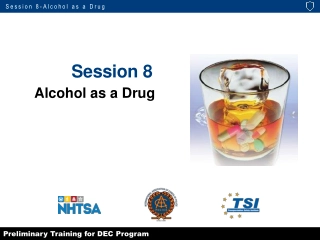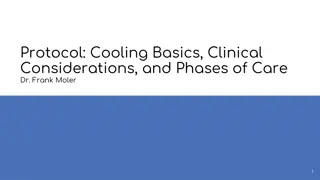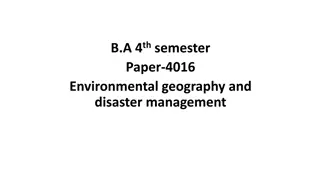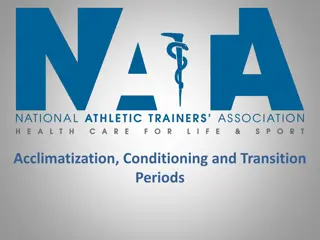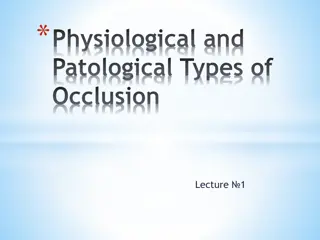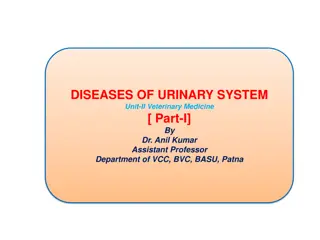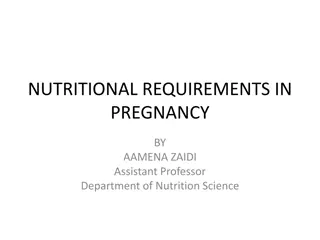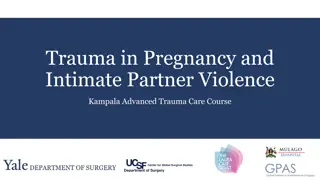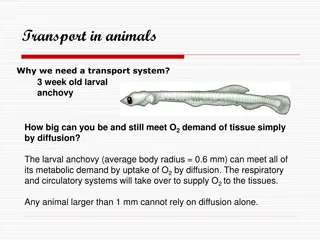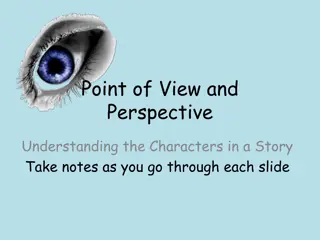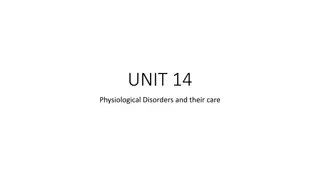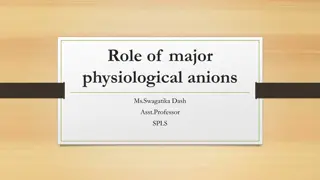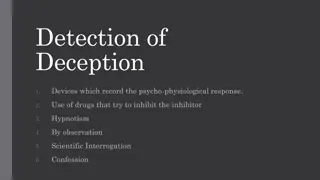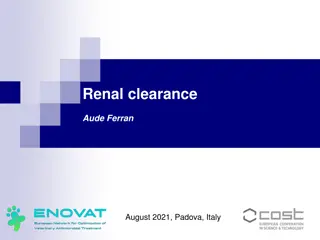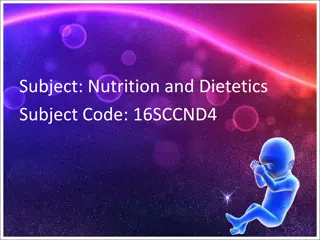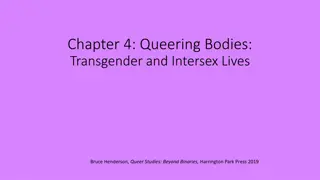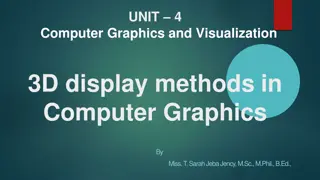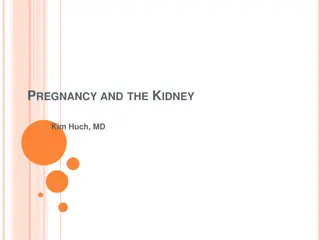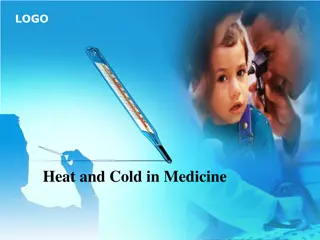Alcohol as a Drug
Preliminary training for the DEC program, covering an overview of alcohol, common types of alcohols, physiological processes of absorption, distribution, and elimination in the body, and dose-response relationships.
1 views • 32 slides
Enhancing Cognitive Performance through Gut Microbiome Targeting
Explore cognitive performance, gut microbiome, and physiological responses in high-stress scenarios. Develop targeted inventions like pre- and probiotics for improved cognitive performance.
0 views • 5 slides
Kidney Function Tests
The physiological functions of the kidney, the structure of the nephron, and the importance of kidney function tests. Discover the routine tests used, including serum creatinine, creatinine clearance, and serum urea, and how they can confirm diagnoses, determine disease severity, and monitor treatme
5 views • 23 slides
Understanding Heterostyly and Physiological Disorders in Brinjal
Heterostyly in brinjal involves four types of flowers with varying styles impacting fruit setting, while physiological disorders like poor fruit set, calyx withering, and freezing injury can affect the crop's productivity. Controlling measures for each disorder are discussed to help manage these iss
0 views • 10 slides
Understanding Menopause: Symptoms, Stages, and Treatment
Explore the stages of menopause, from premenopause to postmenopause, learn about the symptoms and complications, and discover treatment options to manage this natural transition in a woman's life. Delve into the causes, triggers, and physiological changes associated with menopause, as well as the im
1 views • 57 slides
Understanding Cooling Basics and Clinical Considerations for Patient Care
This presentation delves into essential information on temperature regulation and the application of cooling in patient care. It covers topics such as thermoregulation basics, physiological effects of hypothermia, central temperature measurement, and factors influencing target temperature. The talk
2 views • 72 slides
Understanding the Impact of Sustained Stress on Health and Well-being
This presentation explores the effects of sustained stress on the body, particularly in the context of caring for individuals with chronic conditions like cystic fibrosis. It delves into the physiological responses to stress, the unavoidable stressors faced by caregivers, and the detrimental impacts
1 views • 14 slides
Understanding Ecology: Interactions Between Organisms and their Environment
Ecology is the scientific study of how living organisms interact with each other and their environment. It delves into the relationships between biotic and abiotic factors, encompassing topics such as the distribution and abundance of organisms, structural adaptations, behavior under natural conditi
2 views • 42 slides
Pharmaceutical Chemistry Analgesic Agents Narcotic Analgesics
Analgesic agents play a crucial role in managing pain, ranging from mild to severe, with different categories such as opioids, NSAIDs, and triptans. The origin of pain can vary from physiological to neuropathic causes. Opioids target opioid receptors, with discoveries in endogenous ligands like enke
4 views • 49 slides
Human Adaptations to Diverse Environments: A Study in Environmental Geography
Humans exhibit various biological and behavioral adaptations to thrive in different environments, showcasing our ability to modify and adapt to diverse ecosystems. This adaptation is essential for our survival in varied habitats, ranging from humid tropical forests to arctic wastelands. Through gene
5 views • 6 slides
Guidelines for Safe Athlete Transition and Conditioning
Guidelines for safe athlete acclimatization, conditioning, and transition periods are essential to prevent injuries and heat-related illnesses. The body takes approximately 7-10 days to acclimatize to physiological stress following time off from sports. Different transition periods for individual an
6 views • 11 slides
Understanding Plasma Proteins and Their Functions
Plasma proteins play a crucial role in various physiological functions such as controlling extracellular fluid distribution and transportation of hormones, vitamins, and other substances. The balance between protein synthesis and catabolism determines protein levels in the vascular compartment, affe
6 views • 23 slides
Understanding Temperamental Differences in Gender Dynamics
Exploring the physical, physiological, mental, and emotional disparities between men and women to navigate relationships successfully. Addressing temperament as the foundational template shaped by natural strengths and tendencies, while character is molded by external influences.
1 views • 36 slides
Understanding Pulmonary Circulation and V/Q Ratio in Respiratory Physiology
Explore the high-pressure and low-pressure circulations supplying the lungs, the concept of physiological shunt in pulmonary circulation, different lung zones based on blood flow, V/Q ratio and its clinical significance, and abnormal V/Q ratio patterns. Delve into the role of pulmonary circulations
11 views • 28 slides
Understanding Physiological and Pathological Types of Occlusion
This lecture discusses the physiological types of occlusion, focusing on facial and jaw signs to determine correct harmonious occlusion. It explains characteristics of orthognathic bite, straight bite, physiological biprognathism, and opisthognathic bite, highlighting key features such as tooth alig
1 views • 34 slides
Understanding Urinary System Function in Veterinary Medicine
The urinary system in veterinary medicine involves the anatomy and physiological functions of maintaining body fluid composition and volume. Key processes like urine production, filtration, reabsorption, and regulation through nephrons play vital roles in maintaining overall health. This article cov
1 views • 14 slides
Understanding Nutritional Requirements in Pregnancy by Aamena Zaidi
Adequate nutrition before and during pregnancy is crucial for long-term maternal and fetal health. Maternal health is influenced by genetic, social, and economic factors, impacting physiological adaptations for better nutrient utilization. Physiological changes in pregnancy include increased total p
0 views • 41 slides
Understanding Trauma in Pregnancy and Intimate Partner Violence
Pregnancy introduces unique challenges in trauma care due to anatomical and physiological changes. Major physiological alterations impact injury patterns and responses, necessitating specialized management strategies. Blunt trauma incidents during pregnancy, including motor vehicle crashes and falls
1 views • 33 slides
Importance of Transport System in Animals for Oxygen Supply
Animals require a transport system to meet tissue oxygen demands efficiently. The size limit for oxygen diffusion alone is around 1 mm due to the proportional increase in radius and diffusion properties. Blood is crucial for transporting oxygen, nutrients, waste products, cells, and heat, as well as
0 views • 17 slides
Understanding Point of View and Perspective in Storytelling
Exploring the concepts of point of view and perspective in storytelling is crucial for understanding characters in a narrative. Point of view defines how the author presents the story to readers, while perspective delves into the lens through which the story is told, offering insights into character
1 views • 10 slides
Understanding Perspective in Art: Techniques and Definitions
Perspective in art refers to techniques that provide depth and realism to artworks, making them appear three-dimensional. Key concepts include viewpoint, horizon line, and vanishing point. Different types of perspective, such as one-point and two-point perspective, offer artists varied ways to creat
2 views • 18 slides
Understanding Physiological Disorders: Rheumatoid Arthritis and Coronary Heart Disease
Explore the causes, effects, and treatment of Rheumatoid Arthritis and Coronary Heart Disease as part of investigating physiological disorders. Delve into the impact on the physical, mental, and emotional health of service users. Gain insights into the diagnosis, treatment, and support necessary for
0 views • 27 slides
Role of Major Physiological Anions in the Human Body
Physiological anions such as chlorides, sulphates, bicarbonate, phosphates, and electrolytes play essential roles in maintaining various functions within the body. Chloride ions help in osmotic balance, charge balance, and acid-base balance. Sulphates are important for detoxification mechanisms and
0 views • 11 slides
Understanding Sociological Perspectives
Sociologists employ three primary theoretical perspectives to explain how society influences young people and vice versa: the symbolic interactionist perspective, the functionalist perspective, and the conflict perspective. Symbolic interactionism focuses on symbols and face-to-face interactions, wh
1 views • 18 slides
Understanding Ageing and its Impact on Health and Social Well-being
Explore the physiological, social, and emotional aspects of ageing in healthcare. Learn about the ageing process, demographic changes, physiological effects, physical diseases, and social impacts on older individuals. Gain insights into the holistic needs of older people and the challenges they face
0 views • 86 slides
Nottingham West CCG Practice Perspective & Local Solutions Overview
This content delves into the practice perspective of Dr. James Read, a GP at The Manor Surgery in Beeston, focusing on early patient identification, staff education, and support to prevent crises. It also highlights the CCG perspective on mental health, emphasizing diagnosis impact, cultural change,
0 views • 7 slides
Black Atlantic Perspective: Critiques and Affirmations within the Western Tradition
The Black Atlantic Perspective offers a unique critique from within the Western tradition, challenging Eurocentric narratives and promoting the ownership of Western civilization by marginalized voices. Rejecting the label of a slave race, this perspective embraces Christian humanism while condemning
0 views • 7 slides
Methods and Devices for Detection of Deception
Various methods and devices are used for the detection of deception, including physiological responses recording, drug usage, hypnotism, observation, scientific interrogation, and confession. Deceptive behaviors manifest in verbal responses, posture changes, gestures, movements, and facial expressio
0 views • 20 slides
Understanding Renal Clearance and its Physiological Mechanisms
This content delves into the concept of renal clearance, exploring its relation to lipophilicity and mechanisms such as glomerular filtration, tubular secretion, and reabsorption. The processes occurring at the nephron level and the vascularization scheme are detailed, along with a breakdown of phys
0 views • 31 slides
Graves County Community Health Assessment: Perspectives and Concerns
Graves County Community Health Assessment provides insights through three perspectives - Data Perspective, Organizational Perspective, and Individual Perspective. It highlights health statistics, concerns, strengths, and risks in the community, including issues like obesity, smoking rates, mental he
0 views • 17 slides
Understanding the Biochemistry of Insect Hemolymph
Insect hemolymph, also known as blood, plays a crucial role in maintaining the tissues throughout the body. It consists of plasma containing hemocytes suspended in a fluid rich in various chemicals. The pH of the hemolymph ranges between 6.4 and 6.8, with variations in volume across different insect
0 views • 9 slides
Physiological Changes During Pregnancy: A Detailed Overview
Explanation of physiological changes in pregnancy including genital, breast, blood volume, and composition, as well as skin changes. Details on changes in the uterus, breast size, blood circulation, hormones, gastrointestinal motility, skin pigmentation, and more are covered.
0 views • 51 slides
Developing Resilience Through the Jigsaw of Perspective
Explore the concept of perspective and how it influences our outlook on life. Learn how to see challenges as just one piece of the larger picture, akin to a jigsaw puzzle. Discover strategies to shift your focus from problems to the positive aspects of your life, fostering resilience. Engage in crea
0 views • 6 slides
Study on Physiological Functions Using Chronophotographic Gun
Étienne-Jules Marey's pioneering work in time-resolved photography for studying physiology inspires a proposal for a quantitative analysis of physiological functions using similar techniques. The project involves analyzing videos to study postures, locomotion, and other important physiological para
0 views • 7 slides
Understanding Bodies: Beyond Physiological Container to Social Construct
Bodies are viewed through two contrasting lenses - materialist as a physiological container and social as a construct filled with possibilities. Bruce Henderson's exploration in "Queer Studies: Beyond Binaries" delves into the complexities of transgender and intersex lives, challenging traditional p
0 views • 21 slides
3D Display Methods in Computer Graphics: Parallel vs Perspective Projection
3D computer graphics utilize a three-dimensional representation for rendering images. This article discusses parallel and perspective projection methods, highlighting their differences in preserving proportions and creating realistic views. Parallel projection maintains relative proportions, while p
0 views • 14 slides
Pregnancy and the Kidney: Physiological Changes and Considerations for Chronic Kidney Disease
GB, a 28-year-old woman with a history of FSGS, seeks advice on pregnancy. Physiological changes in pregnancy affect renal function, including increased renal flow and volume, ureteral dilation, and systemic vasodilation. Renal hemodynamics peak in the first trimester without causing kidney damage.
0 views • 36 slides
Understanding Stress Response and its Impact on the Body
Stressful situations trigger a cascade of physiological changes known as the "fight-or-flight" response. The body's hormonal and physiological reactions help in coping with threats, but overreactions to non-life-threatening stressors can occur. The brain's command center, the hypothalamus, communica
0 views • 10 slides
Understanding Heat and Cold in Medicine: A Physiological Perspective
Explore the physical basis of heat and temperature in medicine, how molecules in motion relate to temperature, the concepts of heat and temperature, and the significance of different temperature scales like Celsius and Kelvin in medical applications.
0 views • 62 slides
Exploring Narrative Perspective in Translating Jane Eyre Workshop
This workshop delves into the translation of narrative perspective, guiding participants through decoding and translating a passage from Jane Eyre. Activities include analyzing book covers, back-translating passages, and creating inspired pieces of writing. Participants explore how translators make
0 views • 18 slides
